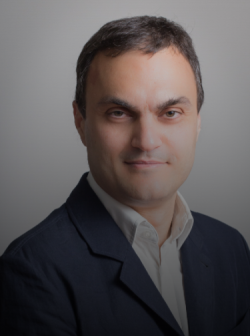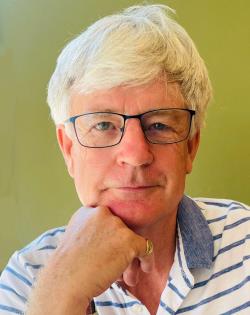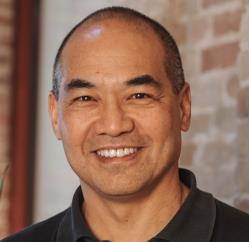Placing learners at the center: ensuring that the use of technology in education is properly defined, measured and governed
UNESCO and Global Education Monitoring Report
Session 353
UNESCO, the custodian agency for WSIS Action Line C7 on eLearning is convening a high-level event during the WSIS+20 Forum in Geneva to discuss monitoring and governance of technology in education. Building on the recommendations of the 2023 Global Education Monitoring Report on technology in education, the Futures of Education Report, UNESCO’s Guidance for generative AI in education, the publication An ed-tech tragedy? which provided a detailed analysis of experiences with educational technologies during the pandemic and the implications for the future of education and research and the monitoring work carried by the Global Education Monitoring Report and the UNESCO Institute of Statistics with the SDG 4 Benchmarks, the event aims to promote collaboration across sectors and different stakeholders to ensure that the use of technology in education is properly defined, measured and governed, and places learner’s interests at the center.
The event will bring together governments, private sector, civil society, academia, and international organizations to discuss how can technology be better leveraged for learning and how countries and different stakeholders can work together to establish normative standards, agree on common definitions and effectively measure progress on digital learning.
Within the context of the WSIS+20 Review and the upcoming Summit for the Future, the discussions will focus on:
Content:
1. A presentation of the 2023 GEM Report and ‘An Ed-Tech Tragedy?’ and their complementary recommendations which seek to facilitate equitable, appropriate, sustainable, and scalable use of technology in education.
Capacity
2. A discussion on the definition and measurement of digital skills
Connectivity
3. A discussion on ways to measure progress on school connectivity with ITU and the GEM Report, including a presentation on the progress of the benchmark on school connectivity developed by the UNESCO Institute for Statistics and the GEM Report
A follow-up session on Scaling multistakeholder partnerships for connectivity and education organized by GIGA and the Digital Transformation Collaborative of UNESCO taking place at 11:00 am in Room H1 will delve into some of these issues emphasizing on the importance of collaboration to drive digital transformation in education.
Both events will provide an opportunity to gather the views from WSIS stakeholders working on issues related to the development of content and capacity of digital learning and strengthening infrastructure and accountability, and to collect their inputs to inform the review of the WSIS+20 action line on e-learning.
**this page is till being updated**

Manos Antoninis has been the Director of the Global Education Monitoring (GEM) Report since 2017, having been previously responsible for the monitoring section of the report. He coordinated the financing gap estimates for the 2030 education targets, the projections on the achievement of universal primary and secondary education completion, and the World Inequality Database on Education. He represents the report team in the Technical Cooperation Group on SDG 4 indicators, of which he is currently co-chair.
He holds a DPhil in Economics for a study of technical education and the labour market in Egypt, completed at the Centre for the Study of African Economies of the University of Oxford.

Tim Unwin (born 1955) is a British academic and public figure, specialising in the uses of digital technology by the world’s poorest and most marginalised peoples. Trained as a geographer, he believes in crossing boundaries between disciplines and sectors, as well as in the importance of international understanding between peoples and governments. He was Secretary General of the Commonwealth Telecommunications Organisation from 2011-2015, was Chair of the Commonwealth Scholarship Commission from 2009-2014, and over the last decade has worked closely with UN agencies, and particularly the ITU, UNESCO and UNICEF. He has written or edited 17 books and more than 250 other publications, with his influential edited book Information and Communication Technologies for Development, being published by CUP in 2009, and his latest single authored book Reclaiming ICT4D being published by OUP in 2017.

Alex has over 30 years professional experience in a series of leadership roles that has consistently focused on building partnerships to address the world's biggest development challenges. Alex currently serves in the Executive Office of the International Telecommunication Union (ITU), the United Nations specialized agency for information and communication technologies, where he is responsible for developing and managing key engagements between the ITU and its partners, and overseeing ITU wide initiatives such as Giga and Partner2Connect. From 2019-2022, Alex served as Senior Strategy Advisor and Chief, Special Initiatives, in the Office of the Director of the Telecommunications Development Bureau (BDT).
Prior to joining the ITU, Alex worked in both the private and not-for-profit sectors. From 2018-2019, he served as President of CG/LA Infrastructure, a US based company that promotes and develops infrastructure projects around the world. From 2000 to 2018, Alex was a member of the Executive Committee at the World Economic Forum, an international organization for public private cooperation with a mission to improve the state of the world, where he held several leadership roles including the development and rollout of the Forum’s Global System Initiatives; heading the ICT, Media & Entertainment, Basics, and Infrastructure industry teams and related projects; and heading the Center for Global Industries Geneva. From 1988-2000, Alex worked in a variety of professional roles at Accenture as a Strategy Consultant, General Motors as a Quality Control Engineer, and the US National Parks Service.
He is a licensed Professional Engineer with a degree in Mechanical Engineering from the University of Toronto and a Masters in Public Administration from Harvard University.
-
 C7. ICT applications: benefits in all aspects of life — E-learning
C7. ICT applications: benefits in all aspects of life — E-learning
-
 Goal 4: Ensure inclusive and equitable quality education and promote lifelong learning opportunities for all
Goal 4: Ensure inclusive and equitable quality education and promote lifelong learning opportunities for all